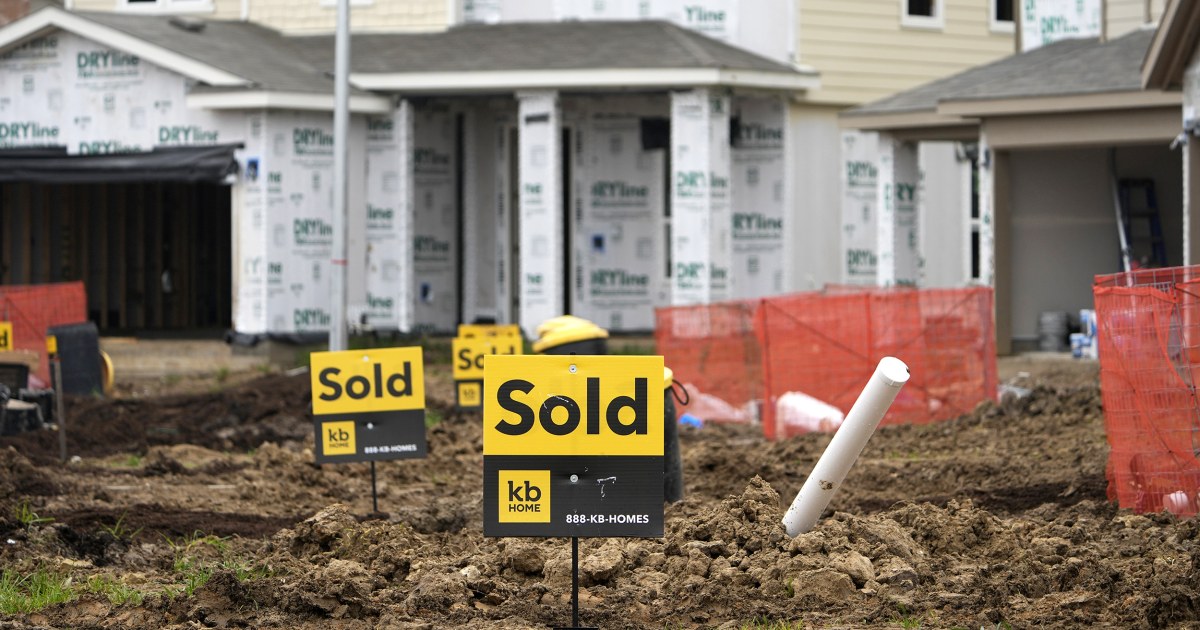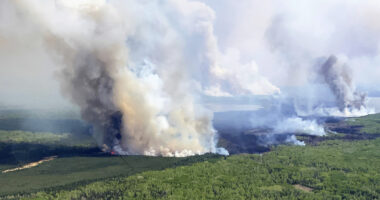
Families priced out of the white-hot housing market are finding that their hard-earned dollars go further in places like Central Texas, where the blazing heat means home prices are markedly cooler.
“I’m willing to exchange one extreme for the next to have a change in scenery and the opportunity to have more space,” said Elsie Ayala, a Californian raised in Chicago, who just purchased a 1,700-square-foot home in Pflugerville, a suburb of Austin, Texas, for slightly more than her $400,000 budget.
It’s one of many regions that have seen record home sales in the last year as first-time homebuyers like Ayala are priced out of large cities and areas with more moderate weather, said Daryl Fairweather, chief economist with real estate brokerage firm Redfin.
“There is a price premium on nice weather.”
The result is a massive influx of new homeowners into hot climates like Texas, a state that is less prepared for the public health consequences of extreme heat compared to other states, said Megan Weil Latshaw, an associate scientist with the Johns Hopkins Bloomberg School of Public Health. But for new homeowners like Ayala, buying a place in the extreme heat is the only option.
“Our graphs show there is a price premium on nice weather,” said Nicole Bachaud, an economic data analyst with the online real estate brokerage firm Zillow. “That hasn’t really changed.”
The country’s top five urban metro areas with the highest number of pleasant days of weather had median home values at around $600,000 in 2019, more than double the national median of $229,000, according to Zillow. Ventura, California, which topped the list, has an average home price of $782,000. San Diego, which came second, has an average home price of more than $858,000. By comparison, Austin’s average home price is around $596,400.
“Homes along the West Coast have all become way more expensive in the last decade,” Fairweather said. “For the time being, home prices in areas with higher climate risk are more affordable.”
Migration to some of the country’s most sweltering areas comes on the heels of a record hot summer. The average temperature across the U.S. this summer clocked in at 74 degrees Fahrenheit, or 2.6 degrees warmer than the long-term average, according to the National Oceanic and Atmospheric Administration. A report from the U.N.’s Intergovernmental Panel on Climate Change warned that heat waves that previously may have occurred once every 50 years can now be expected every 10 years.
While nearly 3 out of 4 people surveyed by Redfin said they would be hesitant to buy a home in an area with extreme temperatures, people are still flocking to such areas. The 50 U.S. counties with the largest share of homes facing high heat risk saw populations increase by an average of about 5 percent from 2016 to 2020, according to an August report from Redfin. Of these counties, 40 had median sale prices below the national level of $315,000, the report showed. Williamson County, where most of the city of Pflugerville is located, had the highest level of growth, at 16 percent.
“People are much more fixated on budget and being close to family or work than thinking about climate risk,” Fairweather said.
Fabian Gambino, an investment broker from Brooklyn, New York, has lived with his fiancée in Ventura, California, near her office in Santa Barbara for the last year. When the couple was ready to buy a home, they quickly realized they couldn’t afford Ventura — so they moved to Pflugerville.
“Down here we’re able to pay a mortgage payment for less than we were paying for rent in California and definitely less than Brooklyn,” said Gambino, who purchased a new 2,600-square-foot home this summer for $700,000. “It’s the only option young people have these days, because where do you go?”
Ice storms in Texas earlier this year, along with a scorching heat wave this summer, have raised concerns among scientists, local policymakers and residents about the country’s power grid capacity. During the summer heat wave in June, about 70 percent of power plants unexpectedly went offline, putting strain on plants that were still in operation. As temperatures lingered in the 90s, Texas’ power grid operator asked residents to conserve electricity.
In Phoenix, an area that saw a 15 percent migration rate between 2016 and 2020, temperatures reached over 115 degrees Fahrenheit for a record-setting six consecutive days in June, according to NOAA.
But, unlike Arizona, Texas is not well prepared for the heat and the inflows of new residents, according to a December report from Johns Hopkins University and Trust for America’s Health.
Texas had a higher number of days with a severe storm causing injury or death, according to the analysis. It also had fewer people proficient in English, which can impact people’s ability to understand and act on public health messages and emergency alerts. Additionally, a higher percentage of the population is nonwhite, which may also affect disaster preparedness resources to areas that are disproportionately communities of color.
“When it comes to preparedness for the health effects of climate change, Texas didn’t seem to have even identified the health effects related to risks in the state,” Latshaw said. “Neither did they identify interventions to address them.”
For homeowners like Ayala, the heat means added costs to maintain her home. The roof needs to be partially replaced, because the Texas sun and hail have thinned out its shingles or popped them off entirely. Her 20-year-old air conditioner went out briefly this month and needed a new fuse. Ayala has bought a variety of insurance policies to protect her home in the event of a storm or additional damage from the heat.
“I come from a traditional Mexican family, and [my parents] do not have money to support me. If anything, I need to help them,” she said. “I want to be prepared if anything goes wrong because I feel like with Texas, I definitely need it.”
Source: | This article originally belongs to Nbcnews.com










